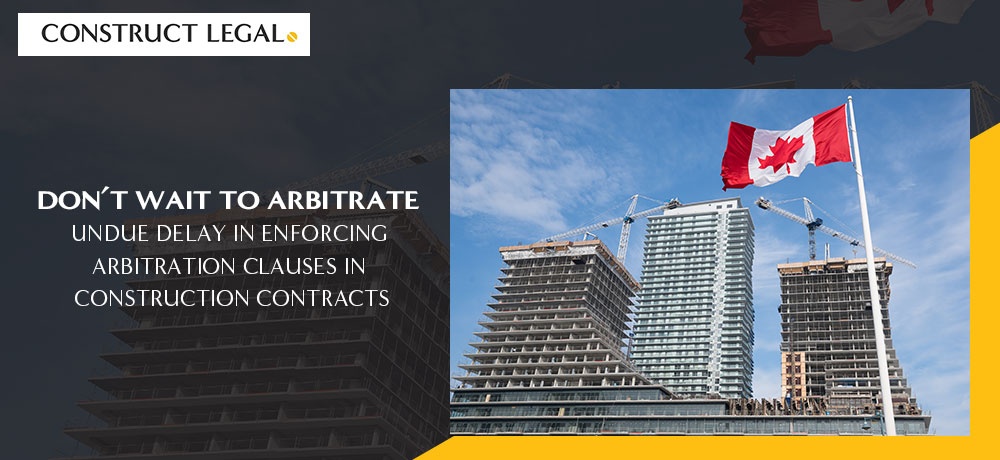Don’t Wait to Arbitrate – Undue Delay in Enforcing Arbitration Clauses in Construction Contracts

If you are a party in a construction dispute and your contract includes an arbitration clause, the Ontario Superior Court of Justice decision of Bombino v Serendipity Homes (“Bombino”) suggests that you should not wait to enforce the arbitration clause.1
Background
In Bombino, the owner of a construction project started a lawsuit against the contractor for various claims, including for deficiencies in the work and for not meeting the substantial performance date in the contract. Approximately two years after the lawsuit was started, the contractor defended the lawsuit and counterclaimed against the owner. The parties also exchanged their documentary productions as part of the lawsuit.
The contractor then brought a motion seeking to stay or dismiss the lawsuit on the basis that the construction contract contained a mandatory arbitration clause that covered the disputes in the lawsuit. The contractor argued that the owner should have started an arbitration for this dispute (based on the arbitration clause) instead of suing in court.
Analysis of the case
Where a contract has an applicable arbitration clause, the Arbitration Act, 1991 (Ontario) allows a defendant in a lawsuit to bring a motion to stay (or suspend) the lawsuit in favour of arbitration. The court first looked at the arbitration clause itself and determined that the clause had a wide scope that covered the construction claims made in the lawsuit.
The court also addressed section 7(2) of the Arbitration Act, 1991, which allows the court to refuse to stay a lawsuit in favour of arbitration where the defendant’s motion for a stay “was brought with undue delay”. Whether a motion is brought with undue delay is fact-specific and depends on the circumstances of a case. The court may look to what has happened during the delay period to determine the reason(s) for the delay, and whether any harm or prejudice would occur if a stay of the lawsuit is granted.
In the circumstances of the Bombino case, the contractor waited approximately four years from the date the owner started the lawsuit to bring the motion requesting a stay. During that time, the contractor engaged with the lawsuit by defending the claim, starting a counterclaim and third party claims, delivering document productions, and serving a jury notice for trial. Given the contractor’s involvement in the lawsuit, the court ultimately determined that the contractor attorned to (or acknowledged/agreed with) the court’s jurisdiction and could no longer rely on the arbitration clause. The court also determined that there was no evidence of harm if the lawsuit were to continue.
Key takeaway
If you are a party to a construction contract with an arbitration clause and you wish to enforce the arbitration clause in the face of a lawsuit, you should move to enforce the arbitration clause at the earliest opportunity. If you wait too long, you may not be able to rely on the arbitration clause.
If you have any questions about construction disputes, including arbitration, please contact a member of Construct Legal.
The information contained in this article is not legal advice.